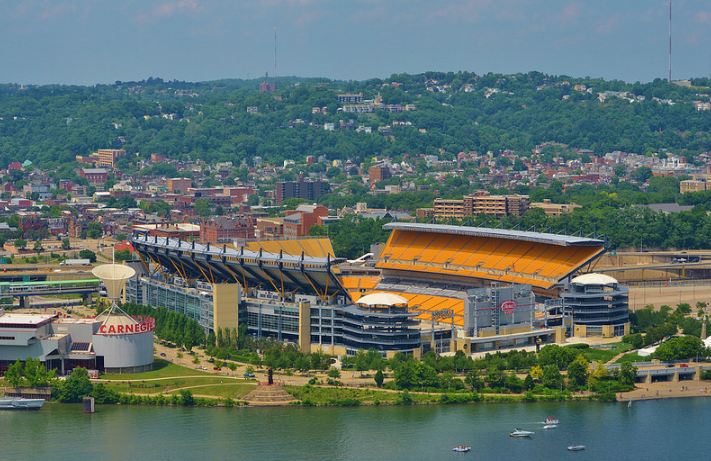






PokerStars To Pennsylvania: Our System Can Detect 90 Percent Of Bots ProactivelyPoker Site Tells Regulators How It Prevents Collusion, Robot Players |
|
|

The Keystone State is inching closer to launching an online casino industry, as regulators last week issued three certificates to brick-and-mortar casinos planning to bring their games to the web.
One of the properties was the Mount Airy Resort Casino, located about 100 miles north of Philadelphia. On Aug. 10, Mount Airy announced that it partnered with the Toronto-based Stars Group, owner of PokerStars, for what the state calls “interactive gaming.”
In a PowerPoint presentation from the Pennsylvania Gaming Control Board’s Aug. 15 meeting, PokerStars gave regulators a brief outline of its company history and some of its milestones in the roughly 20-year-old online poker industry. The company shared information on how many hands it has dealt (more than 172 billion), how much of the global market it controls (more than 70 percent) and some of the latest data on game integrity, among other things.
PokerStars told regulators that it identifies 89.9 percent of collusion cases from its “proactive alerts.” It also said it detects 88.96 percent of “all bots” thanks to its proprietary systems. Poker players themselves also help the online room catch the cheats and non-human players, in addition to the 65 employees PokerStars says it has on staff to monitor game integrity.
The site dealt with a bot scandal back in 2015 when it was reported that a Eastern European ring of artificial players won an estimated $1.5 million at the low-stakes PLO tables. PokerStars banned the accounts and issued refunds to impacted customers. The following year, PokerStars was requesting that some suspicious accounts send video verification of their human identity. PokerStars announced in late 2015 that it was cracking down on third-party software.
Keeping play fair is of utmost concern not only to regulated platforms like PokerStars, but also to state officials in Pennsylvania. In early 2017, a poker playing bot designed by computer scientists at Carnegie Mellon University in Pittsburgh thoroughly beat a group of elite poker pros over a 120,000-hand match. Later that year, one of the men behind the bot said that it was able to achieve “superhuman performance” in heads-up no-limit hold’em. Libratus, the name of the CMU bot, could also eventually achieve a similar dominance in six-handed games.
PokerStars said in a financial report released earlier this month that it had 1.86 million “real-money active uniques” in the second quarter of 2018, so enforcing the rules and making sure poker games are fair is a major job for the world’s largest poker site.
 In the presentation to Pennsylvania, the firm boasted that its platform has supported as many as 500,000 “simultaneous players”, which is “greater than Lincoln Financial Field and Heinz Field both filled three times over with poker players.”
In the presentation to Pennsylvania, the firm boasted that its platform has supported as many as 500,000 “simultaneous players”, which is “greater than Lincoln Financial Field and Heinz Field both filled three times over with poker players.”
A PokerStars launch in Pennsylvania would follow its early 2016 launch in neighboring New Jersey. Pennsylvania regulators haven’t said when games will go live. “The Board has yet to establish a date in which interactive gaming will commence,” said an Aug. 15 press release.
Mount Airy is home to a nine-table poker room. Resorts Casino Hotel, PokerStars’ brick-and-mortar partner in the Garden State, doesn’t have live poker. If PokerStars is approved for Pennslyvania, it would be the 20th jurisdiction globally where it has received approval.
Harrah’s Casino Philadelphia and Parx Casino were the other two casinos to receive interactive gaming approval. Harrah’s, owned by Caesars, will bring the WSOP-branded site to Pennsylvania. That site is powered by 888Poker. Parx partnered with GAN plc for online gaming.
